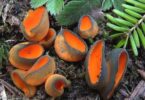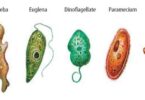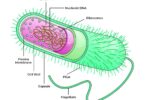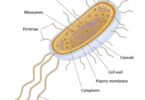MCQ ON ANIMAL KINGDOM class 12 for NEET | ANIMAL KINGDOM class 12 | MCQ ANIMAL KINGDOM with Answer | Check the below NCERT MCQ question for class 12 Biology based on the with Answers.

MCQ ON ANIMAL KINGDOM class 12
MCQ on ANIMAL KINGDOM class 12 Biology with answers were prepared based on the latest pattern.We have provided class 12 Biology MCQs question with Answers to help students understand the concept very well.
MCQ ON ANIMAL KINGDOM is useful for NEET / CSIR / UGC / CBSE / ICSE / AIIMS / EXAM / AFMC EXAM / STATE LEVEL MEDICAL EXAM 2022-23 , 2023-24
INTRODUCTION:-
Over a million species of animals have been described till now.These species differ in structure and form.inspite of these differences , there are fundamental features common to various individuals with respect to the arrangement of cells, body symmetry, nature of coelom, patterns of various organ- system . The study of general animal features reveals evolutionary trends in almost each structure and function.
Animals are multicellular , heterotrophic eukaryotes.
The cells of each type are aggregate to serve specific function.
In more complex animals ,
group of organ work together for a common goal.
Animal body show three level of structural organization: cellular level ,tissue level and organ – system level organization.
Animals have three basic body plan : cell aggregate plan, blind sac plan and tube – within – tube plan.
MCQ ON ANIMAL KINGDOM class 12 for NEET
1. Class Bivalvia is characterized by
(a) perioral tentacles
(b) lack of head
(c) coiled shell
(d) absence of gills
Ans (b) lack of head
2. Small quill – like feather at the base of the wing quills are
(a) coverts
(b) down feathers
(c) filoplumes
(d) barbules
Ans. (a) coverts
3. Bat can fly with
(a) Ears plugged and eyes covered
(b) Ears open and eyes covered
(c) Ears plugged and eyes open
(d) All the above
Ans. (b) Ears open and eyes covered
4. A link between non chordata and chordata is
(a) tadpole larva
(b) belanglossus
(c) sphendon
(d) crocodilus
Ans.(b) belanglossus
5. First vertebrates originated during the period
(a) Devonian
(b) Silurian
(c) Carboniferous
(d) Ordovician
Ans.(d) Ordovician
6. The extinct bird dodo belonged to
(a) India
(b) Australia
(c) Mauritius
(d) Indonesia
Ans.(c) Mauritius
7. Gambusia is a
(a) pest of fishes
(b) parasitic fish
(c) Predator of mosquito larva
(d) yellow fever mosquito
Ans.(c) Predator of mosquito larva
8. Most primitive living mammals which provide in evidence of organic evolution from geographical distributions are found in
(a) India
(b) China
(c) Australia
(d) Africa
Ans.(c) Australia
9. Which of the following is the smallest taxonomic group of animals having a cranium, vertebral column, ventral heart, pulmonary respiration and two pair of legs.
(a) chordata
(b) vertebrates
(c) tetrapoda
(d) gnathstomata
Ans. (c) tetrapoda
10. Long hollow bones with interconnected air passage are characteristics of
(a) reptiles
(b) aves
(c) mammals
(d) all land vertebrates
Ans. (b) aves
11. Which of the following is not clearly noticeable in birds
(a) pectoral girdle
(b) pelvic girdle
(c) hind limb
(d) fore limb
Ans.(d) fore limb
ALSO READ:-
● YOU CAN WATCH BIOLOGY SIR Youtube channel
12. Sea snakes are
(a) oviparous
(b) viviparous
(c) ovoviviparous
(d) parthenogenetic
Ans . (b) viviparous
13. Animal having radius symmetry in the adult and bilateral symmetry in the larva are
(a) hemi chordata
(b) molluscs
(c) echinoderms
(d) cephalochordata
Ans.(c) echinoderms
14. Annelida are advanced over nematoda in having
(a) metameric segmentation
(b) true coelom
(c) closed circulatory system
(d) all the above
Ans. (d) all the above
15. Ambulacral grooves are absent in the class
(a) asteroidea
(b) crinodea
(c) ophiuroidea
(d) none of the above
Ans.(c) ophiuroidea
16. Cestodes differ from other flatworms in lacking
(a) digestive system
(b) excretory system
(c) nervous system
(d) reproductive system
Ans.(a) digestive system







Leave a Comment